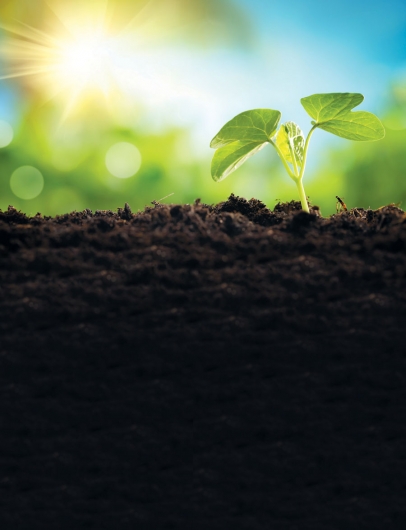Spirits of the Garden
Growing your own food is certainly a spiritual exercise. While some may garden in the evening to decompress from a long day in the office, others are up at the crack of dawn to set their day on a path of meaning and tranquility from the start.
Modern Western society rarely considers gardening a subsistence practice. However, in Central and South America many rural families grow the vast majority of their calorie and nutrient intake. These societies often follow ritual practices that celebrate the spiritual nature of food production.
In the Andes, people still provide offerings to the deity Pachamama, who is believed to provide for planting, fertility and harvesting of crops. These ceremonies, or challa, often involve the decorative placement and burning of agricultural crops such as potatoes, herbs and flowers. A fermented corn beverage called chicha is often poured out ceremoniously before the display is lit on fire.
While you may not rely on a spirit like Pachamama to provide for the fertility and safety of your crops, there are certainly energies involved in vegetable gardening, and understanding them can bring you great success.
SUNLIGHT: Nearly all of the energy on Earth comes from the sun. The only way most creatures have access to this energy is by the photosynthesis of plants. It is this first “trophic level” of the food web, the autotrophs, which are able to create their own energy without consuming another living being. Sunlight is required for plants to survive, but some plants cannot handle as much as the sun wishes to give and require some shade. Although most vegetables are happy with everything the sun can give, some herbs—such as parsley and lemon balm—appreciate a good bit of shade in our warmer months.
SOIL: Watching the microbial activity of healthy soil through a microscope is shocking to most first-time viewers. Protozoa whizz and spin back and forth across the screen while microarthropods and nematodes bumble about clumsily. The bacteria just vibrate and the fungi … well, the fungi don’t do much of anything. All of these microbes are critical to a healthy soil food web that releases the nitrogen and other nutrients critical to healthy plants just as they need them.
WATER: Rainfall or irrigation is a requirement for any edible garden. The evaporation of water from plant leaves creates the suction they use to move nutrients and energy around within their structures. Rainfall, when heavy enough, also has great effects on the health of soil by drawing in fresh air behind it as it travels down through the soil. This is one reason why your garden looks much better after a heavy rain than after irrigating a moderate amount.
HUMAN: Plants can survive just fine on sun, soil and water but they don’t provide the same flavor, energy and nutrients without thousands of years of plant breeding. In the modern vegetable garden, your energy is critical to coaxing these wonderful plants into the perfect production of the crops we so desire. The old gardening adage may only say that “the best fertilizer is the gardener’s shadow” but this includes the gardener’s efforts at pest control, irrigation and beating the birds and squirrels to the ripest fruits.
So whether you pour out some chicha for Pachamama or study the microbes in your soil with a microscope, be aware of the spirits of gardening and their graceful effects on our own health. Maybe we have the adage all wrong: Maybe it should be “the best tonic is the shade of the fruit tree.”





